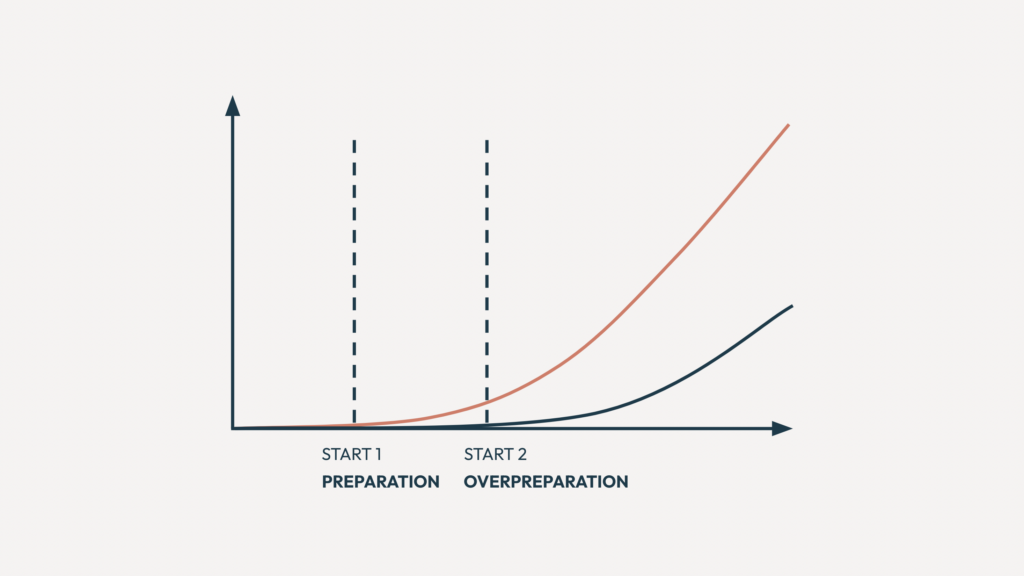Back in 2018, I spent weeks learning everything about rare teas to start a new business; I studied every resource I could find, saved them in a folder, took copious notes, and then… Nothing.
When it was time to take the first real step, I hesitated. The hesitation turned into procrastination, endlessly tweaking and perfecting my plans without any action.
The excitement I once felt about the project slowly faded into self-doubt. I convinced myself I just needed a bit more preparation to feel ready, but the perfect moment never came.
Many of us fall into the trap of believing that we’ll know when we’re ready. But the key to making any real progress is to be able to transition from preparation to action before you feel ready.
The Pitfalls of Overpreparation
Preparation is essential. It equips you with the knowledge and tools you need to begin any ambitious pursuit. But there’s a thin line between preparation and overpreparation. Whether you’re planning on writing a book, launching a product, or building an exercise routine, getting ready can become a distraction.
Being successful is not about your ability to plan, but your ability to act. There will always be more planning to do, more scenarios to consider. Of course, it would be amazing to feel utterly ready. But the reality is that waiting until you feel ready may mean the opportunity to act has already passed.
Unfortunately, research shows that we often mistake being busy for being productive. This is known as the illusion of productivity. For instance, reading articles, watching tutorials, or creating detailed plans feels productive because it tricks our brains into thinking we’re making headway.
However, without actionable steps, this preparation only reinforces a false sense of accomplishment.
Here’s the reality: you don’t know what you don’t know. The quickest way to learn these unknowns is to step into action. That’s when true progress – when you adapt and respond to real challenges.

From Preparation to Action
When faced with uncertainty, we tend to err on the side of overpreparation because it feels safer. Developing an action bias can help you take the leap even when you don’t feel fully prepared. Here are five ways to develop an action bias:
- Prepare for action. Allocate a specific amount of time for research and planning, and commit to acting and taking that first step once the time is up.
- Avoid the illusion of productivity. Whether it’s reading more tutorials or organizing your workspace, these activities make us feel accomplished without real progress. Avoid this trap by regularly asking yourself if your current task will lead to tangible action.
- Start before you feel ready. Break your first action into the smallest possible step. Whether that’s writing one paragraph or making one sales call, understand that starting imperfectly is better than not starting at all.
- Learn by doing. Studies suggest that active learning outperforms passive preparation. When you act and make mistakes, you gain valuable feedback that sharpens your understanding and skills.
- Build momentum. After taking your first step, take a moment to review what you learned and adjust your next step. This metacognitive practice creates a feedback loop that enhances learning through doing.
Overall, this is about shifting your mindset from “What else do I need to learn?” to “What can I do with what I already know?”
Of course, it’s not easy to face the fear of the unknown, especially when it’s something you deeply care about. But a first step is just what it says on the tin – the first of many steps to come.
You may make more mistakes at first, but the long-term compound effect of learning from these mistakes will get you closer to success (whatever that ends up looking like) than any amount of extra preparation.
So, take one step right now. Instead of overpreparing, start before you feel ready. Pick a first step and just do it. Repeat that step until you feel comfortable enough, then kick it up a notch. When you look back, you won’t believe how much progress you’ve made.
